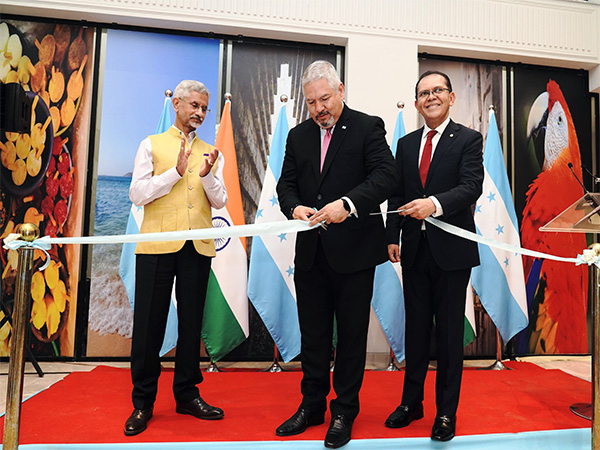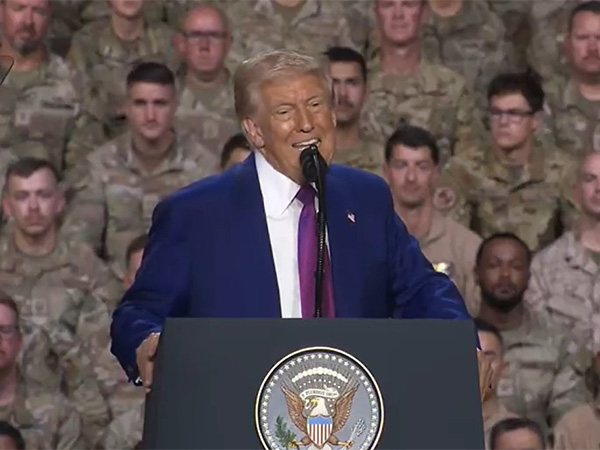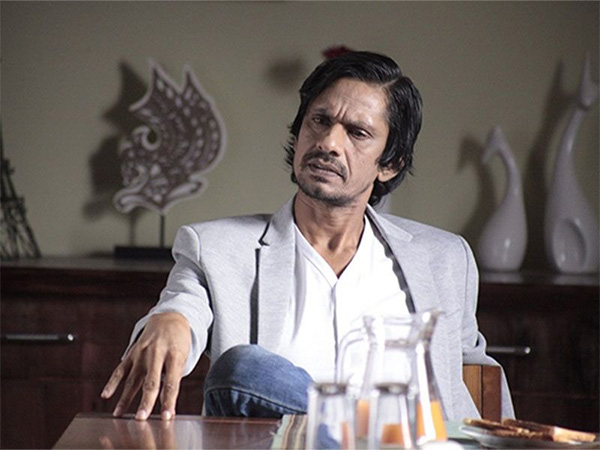
India's decision to engage with Pakistan was not result of US mediation: KP Fabian
May 15, 2025
New Delhi [India], May 15 : Former diplomat and foreign affairs expert KP Fabian on Thursday asserted that India's decision to engage with Pakistan was not a result of US mediation post Operation Sindoor.
He said that the US played a subtle yet significant role in pushing Pakistan towards the ceasefire talks.
Speaking to ANI, Fabian clarified that the US did not facilitate direct mediation between India and Pakistan. Instead, the Americans seem to have nudged Pakistan in the right direction, encouraging them to talk with India directly.
"America did not mediate; they might have pushed Pakistan at some point for the ceasefire. It was not the US telling us, 'You should talk about it, India will do this, Pakistan will do that,' - that would be termed mediation. However, pushing Pakistan towards the ceasefire talks is not mediation but is still good. We are grateful to them for that much. We should thank President Trump for this, but the thanks is in context, not for the mediation; I clarify that there was no mediation. America just pushed Pakistan in the right direction, and we thank them for it," he said.
After the intense cross-border hostilities between India and Pakistan, a ceasefire was brokered, the US played a subtle yet significant role in pushing Pakistan towards the ceasefire talks.
The US administration's behind-the-scenes efforts, particularly those of Vice President JD Vance and Secretary of State Marco Rubio, involved extensive communication with Indian and Pakistani officials. Vance reportedly called Prime Minister Narendra Modi, urging him to consider de-escalation options, while Rubio spoke with India's External Affairs Minister, S Jaishankar, and Pakistan's Army Chief, General Asim Munir.
These diplomatic efforts ultimately led to Pakistan's Director General of Military Operations reaching out to India's DGMO to discuss a possible ceasefire.
While the US attempted to take credit for the ceasefire, Fabian suggested that their role was more nuanced.
According to Fabian, when US President Trump announced that he had spoken to both parties and secured a ceasefire agreement, the Indian government was "quite upset" with the claim.
India took decisive action, leaving Pakistan uncertain about its next steps. Pakistan faced a dilemma: escalate the situation or seek a ceasefire.
The US stepped in, urging Pakistan to request a ceasefire. The US then informed India of Pakistan's request, but India insisted on direct communication from Pakistan.
"When President Trump said before the announcement that he had spoken to both parties throughout the night and that we had agreed to the ceasefire, our people were quite upset with that. America did not mediate. We were stern with our actions, and Pakistan did not know what to do next. Should they escalate, or do they ask India to discuss a ceasefire? They were in a dilemma," Fabian said, reflecting on the tense period of engagement.
Pakistan's Director General of Military Operations (DGMO) eventually contacted their Indian counterpart, and the two DGMOs agreed to talks, paving the way for a ceasefire.
Fabian highlighted India's firm stance, ultimately leading to Pakistan seeking a ceasefire. The diplomatic efforts culminated in a fragile peace between the two nations.
He detailed how the situation unfolded diplomatically. "During that time, America asked Pakistan to ask for a ceasefire. The US then told us that Pakistan is asking for a ceasefire, and we said fine, good enough, but we would want to hear that straight from Pakistan. Pakistan should tell us directly that they want a ceasefire. The Pakistani DGMO called after that, and after a while, our respective DGMOs agreed on the talk."
Meanwhile, Fabian emphasised the importance of sharing evidence about the terrorist attack in Jammu and Kashmir's Pahalgam with the UN Security Council. Further, he said that India should make efforts to declare The Resistance Front (TRF) a terrorist organisation.
Speaking to ANI, Fabian talked about the possibility of China objecting to declaring TRF as a terrorist group. He said that the UNSC will not be able to declare the TRF a terrorist entity if China objects to it.
On being asked about Indian technical team in New York to meet UNSC on Pahalgam, he said, "It's very important that we tell the UN Security Council of the evidence that we have. You know, can't always share the evidence with the public unless at a later time, when maybe we can come out with a white paper, but not immediately. So, the evidence that we have and the reasons why we hold Pakistan responsible for Pahalgam. So and who, which particular terrorist agency has done it so that the Security Council has to be informed and we shall endeavour to see to it that The Resistance Front is declared a terrorist agency."
"That will be the correct thing for the Security Council to do. But the question is, will they do the thing? Because most probably China will object and since China is a veto-wielding permanent member, even if China is the only one objecting, the Security Council will not be able to take that decision. But let us see what happens. It is not in China's interest to permit terrorism in Pakistan, but that is China's choice," he said.
United Nations Under-Secretary-General Vladimir Voronkov of the Office of Counter-Terrorism (UNOCT) and Assistant Secretary-General Natalia Gherman of the Counter-Terrorism Committee Executive Directorate (CTED) met with a Government of India delegation.
During the meeting between India and UN, the two sides discussed efforts to counter the use of new and emerging technologies for terrorist purposes, in line with the 2022 Delhi Declaration adopted by the Counter-Terrorism Committee under the Chairmanship of India, UN spokesperson said in response to ANI on the visit of the Indian Technical Team at UN in New York.
The cessation of hostilities understanding came after a sharp escalation between the two countries. On May 7, the Indian Armed Forces launched Operation Sindoor, targeting nine terror sites in Pakistan and Pakistan-occupied Jammu and Kashmir (PoJK).
The move was in direct response to the Pahalgam terrorist attack in Jammu and Kashmir, which killed 26 civilians, including a Nepali national, and injured several others.
Following the attack, Pakistan retaliated with cross-border shelling and drone activity. India responded with a coordinated military campaign, damaging Pakistan's radar, communication centres, and airfields. A cessation of hostilities was reached on May 10.





















